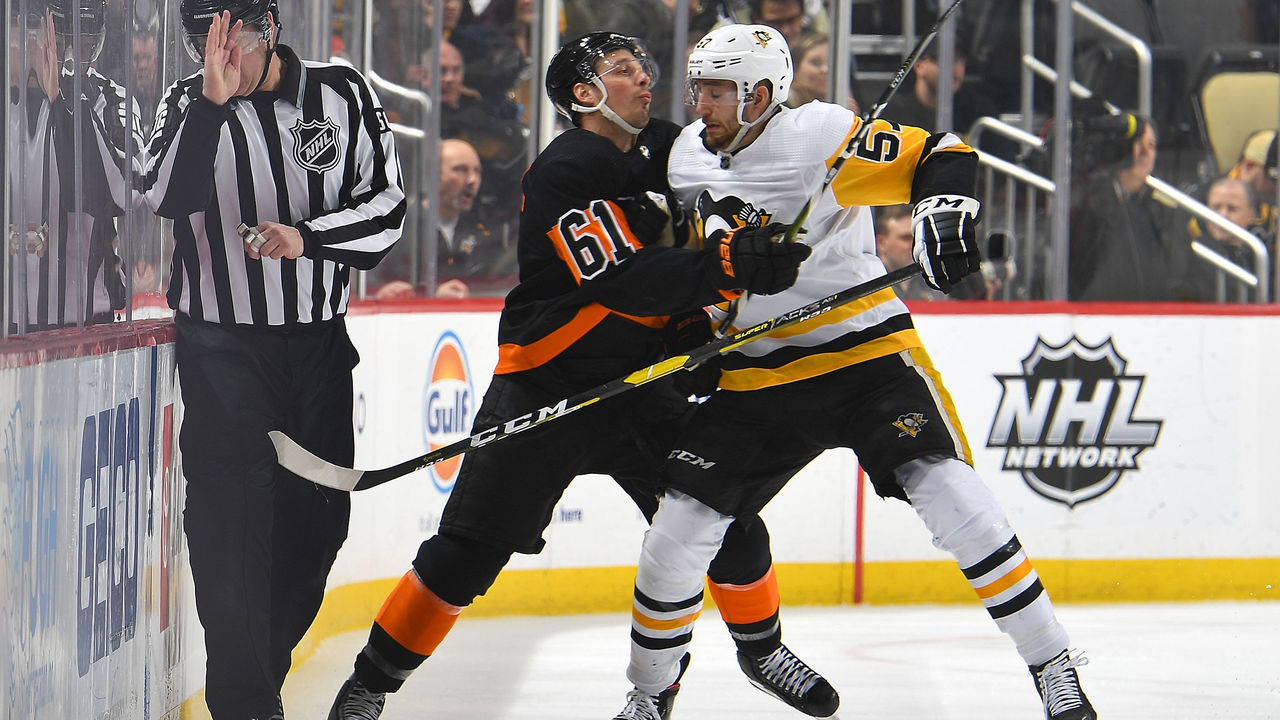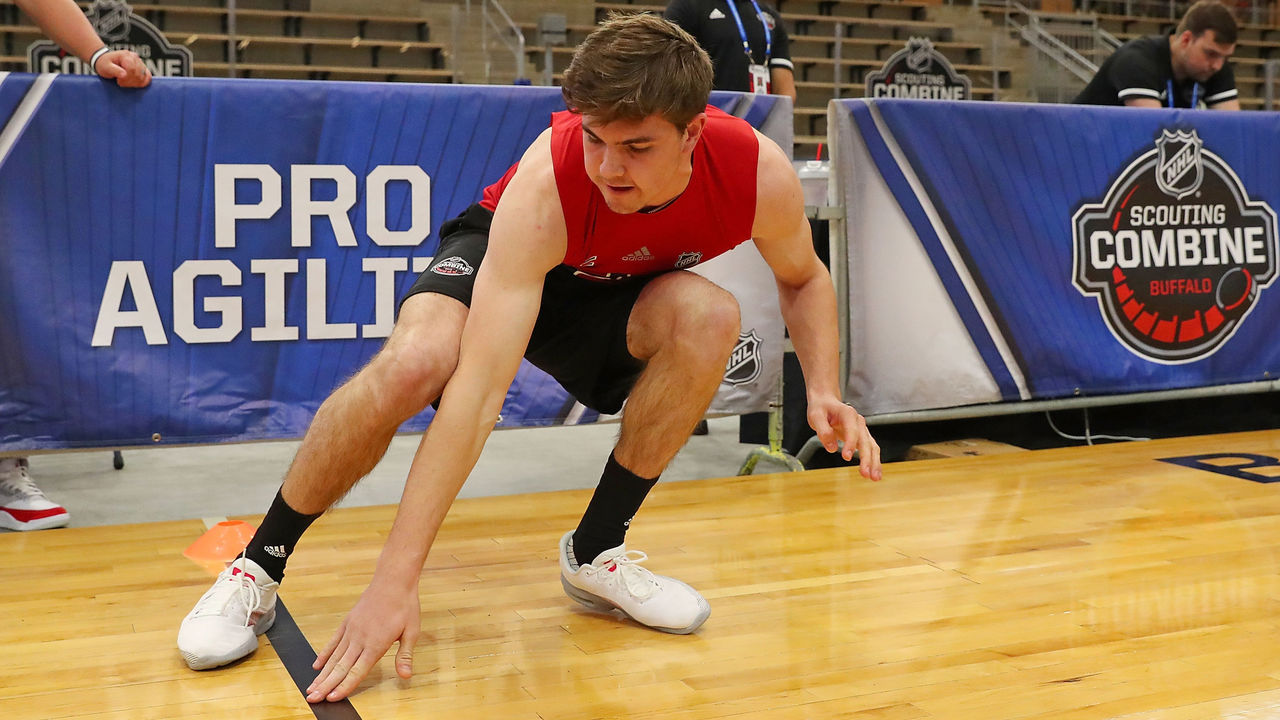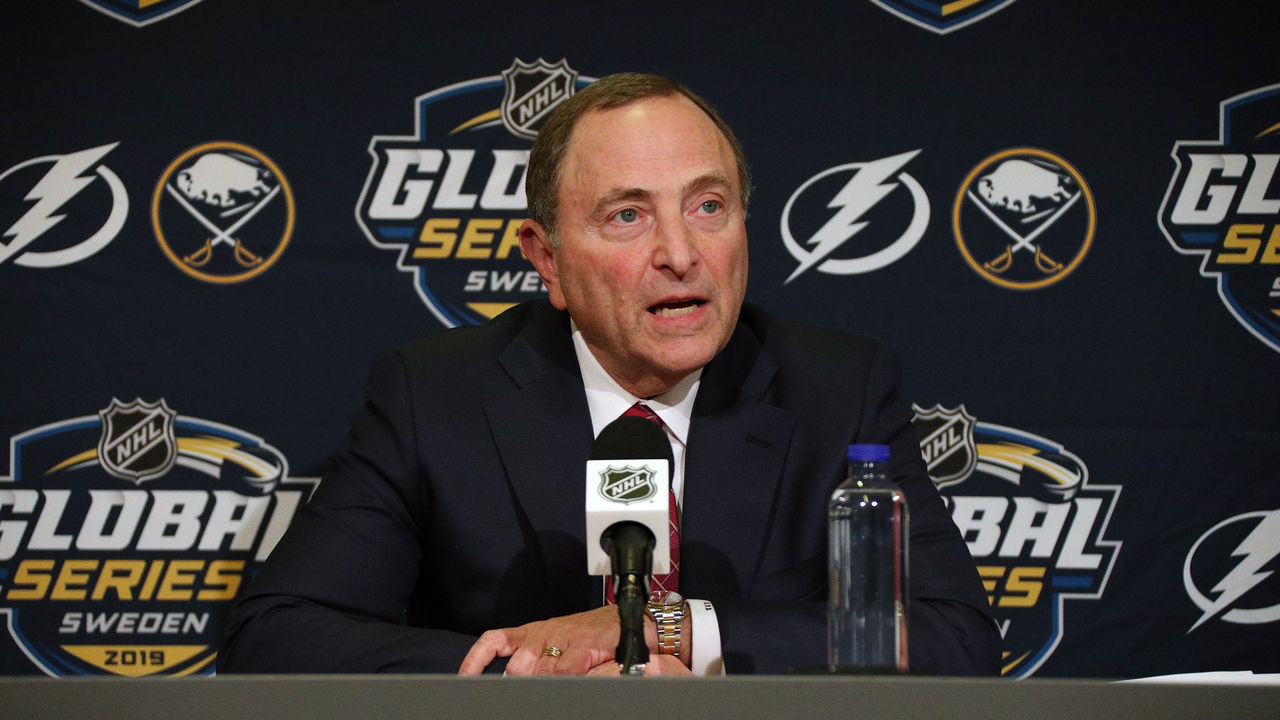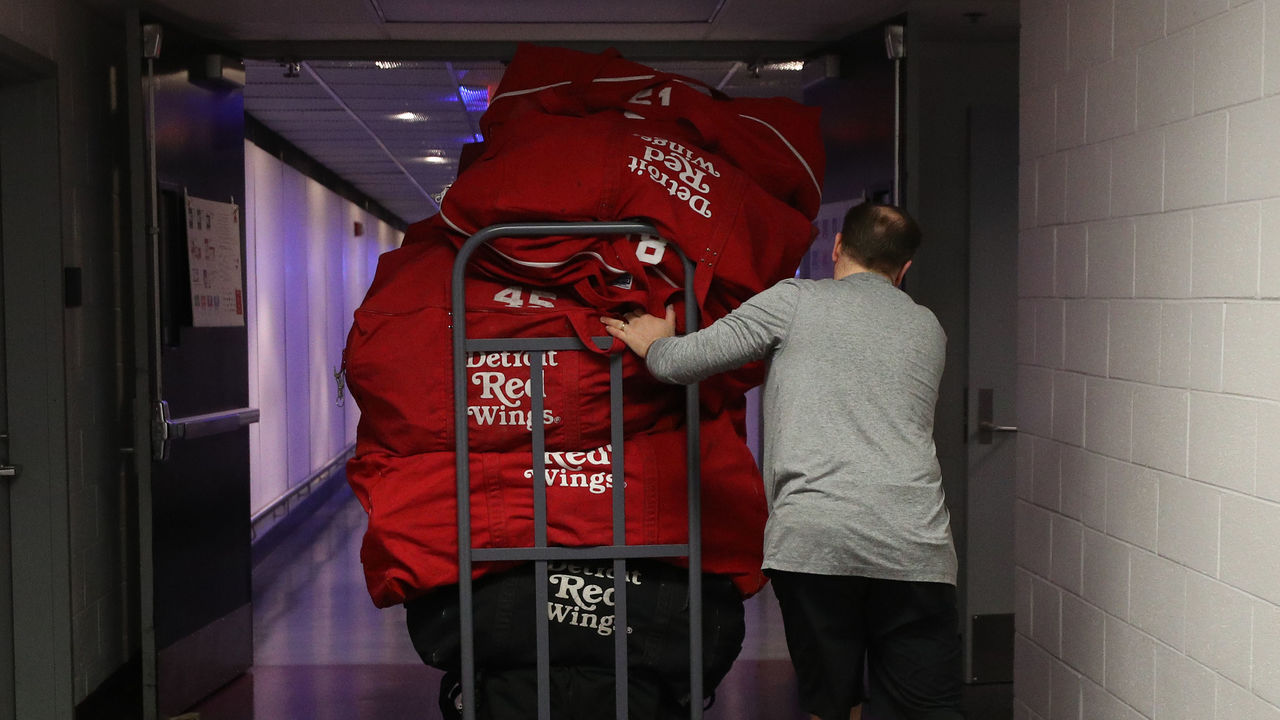Major storylines to monitor as NHL suspends season
Hockey is officially on hold.
The NHL followed the NBA's lead on Thursday afternoon by suspending its season in an attempt to avoid contributing to the spread of the coronavirus. The decision comes after two Utah Jazz players tested positive for the virus, and it marks a sharp escalation in the NHL's response to the outbreak, which until now was focusing on distancing players from the media and curbing contact with fans.
The main concern here is the NHL doing its part in the broader effort to curtail the virus. Games are rightfully an afterthought when steps can be taken to minimize public health risks.
Still, this indefinite postponement raises hockey-specific questions about everything from this year's Stanley Cup chase to the ceiling of the next salary cap. Whether the league can continue the season, and how that might be structured, will shape the resolutions to those issues.
Here are four major storylines to ponder as the hiatus begins.
The playoff picture
Before play was suspended on Thursday, there were between 11 and 14 regular-season games remaining for each NHL team. The race for the final postseason spots in both conferences is now on pause, with no definite word on how, exactly, the timing and length of the schedule will be affected.
Depending on when the NHL decides it's resuming play, the league could opt to go in one of these directions:
Pick up where the schedule left off, play the full remaining slate of games, and push the start and end of the playoffs back.
Play an abbreviated number of remaining regular-season games, then begin the playoffs closer to the original start date.
Cancel the rest of the regular season and hold an impromptu wild-card tournament to settle tight playoff races.
Cancel the rest of the regular season and award playoff positions based on the current standings.
Let's say the postponement lasts several weeks, past the planned end of the regular season on April 4, and the NHL decides that last scenario is optimal under the circumstances. These would be the first-round playoff matchups based on points percentage:
| Atlantic Division |
|---|
| A1: Boston Bruins vs. WC2: New York Islanders |
| A2: Tampa Bay Lightning vs. A3: Toronto Maple Leafs |
| Metropolitan Division |
|---|
| M1: Washington Capitals vs. WC1: Carolina Hurricanes |
| M2: Philadelphia Flyers vs. M3: Pittsburgh Penguins |
| Central Division |
|---|
| C1: St. Louis Blues vs. WC2: Calgary Flames |
| C2: Colorado Avalanche vs. C3: Dallas Stars |
| Pacific Division |
|---|
| P1: Vegas Golden Knights vs. WC1: Nashville Predators |
| P2: Edmonton Oilers vs. P3: Vancouver Canucks |

That's a pretty enticing slate. The Leafs would hold onto a playoff spot and aim to beat the Lightning to earn their first series victory of the Auston Matthews era, and the memory of a Columbus sweep last season is still fresh for Tampa. Elsewhere, Pennsylvania rivals would square off, and the Capitals would meet the Hurricanes in a rematch of last year's first-round series.
Currently, the fight for the final playoff spots is airtight, so several clubs could be forgiven for crying injustice if the regular season were cut short. The Winnipeg Jets (.563 points percentage) and Minnesota Wild (.558) sit a hair outside of the Western wild-card slots. Out east, the Hurricanes (.596) and Islanders (.588) aren't completely clear of the Blue Jackets (.579), Panthers (.565), and Rangers (.564).
This discussion is speculative for now, as figuring out how to proceed will be difficult for the NHL until there's a sense of how long the lull is likely to last. In a statement, the league said its primary objective "is to resume play as soon as it is appropriate and prudent so that we will be able to complete the season and award the Stanley Cup."
To that end, TSN reported Thursday the NHL has asked each team to note which dates their home arena is available through the end of July. Possible overlap with rescheduled NBA games and concerts may complicate that exercise, but the request at least indicates a belief play could stretch deep into the summer if necessary.
An aside on the starkest possible outcome here: The NHL season has ended without a Stanley Cup champion being crowned just once. That occured in 1919, when the Stanley Cup Final was abandoned on the eve of its deciding game because of an influenza pandemic that, within days, killed Montreal Canadiens defenseman Joe Hall.
Scheduling ripple effect
The NHL calendar is rigid. Seasons begin and end around the same time every year, and signature events like the All-Star Game and draft always fall within a narrow time frame. The schedule is neat and tidy with no surprises.
Nothing is neat and tidy after Thursday's announcement, which means there will be a ripple effect on the league's 2020 calendar. A few key questions to ponder:
Will the NHL hold its scouting combine?
As of now, probably not, due to travel concerns and the sweaty, intimate environment the fitness-testing portion of the event creates, which runs counter to recommendations from health officials.
The combine, which is scheduled for June 1-6 in Buffalo, isn't essential to NHL business. It's one part of a wider prospect talent-evaluation process. Teams could conceivably conduct the interview portion of the event via phone or video.

Will the NHL hold its entry draft?
Almost certainly, though it's possible that instead of being held at Montreal's Bell Centre on June 26-27, the draft takes place online and/or at a later date. Unlike the combine, the draft doesn't technically require any in-person contact.
However, the event generates significant buzz for the league. So, unless the virus continues to spread at an alarming rate and business around the continent completely halts, the 2020 draft should occur at some point.
What about the offseason and beyond?
This is where things get tricky and super speculative.
If the current season resumes in a couple of months and not a couple of weeks, the flow of the offseason will be disrupted. Does free agency get pushed back if the playoffs leak past July 1? Are training camp and the preseason prior to the 2020-21 campaign - which together eat up the entire month of September - in jeopardy of being shortened? If there's a lengthy layoff followed by a postseason that goes long into the summer, something's got to give on the scheduling front.
These won't be easy conversations between the NHL and NHLPA, especially with the owners and players sometimes coming to the table with competing interests.
Next season's salary cap
This pandemic has led to an unprecedented economic situation globally, let alone in the sports world. There's no playbook here for professional sports leagues like the NHL.
No matter how the global economics play out, pausing the NHL season for any length of time is going to hurt the bottom line. Commissioner Gary Bettman's projection of an upper limit for the 2020-21 salary cap had been between $84 million and $88.2 million. Throw that projection in the trash now.

This year's upper limit ($81.5 million) is a better benchmark for the time being, though the length of the NHL's season suspension will ultimately determine how much damage is done to the league's annual revenue of about $5 billion. Spring is especially important, with the hectic two-month postseason driving fandom.
And the salary cap is strongly linked to fandom. Ticket sales, concessions, merchandise, in-arena board advertisements, and more are included in hockey-related revenue. Making matters worse, the Canadian dollar - another big economic variable for NHL business - has sagged lately.
Remembering this season
Beyond how the rest of the campaign is structured and the possible financial fallout heading forward, indefinite postponement also presents a spiritual conundrum. How should fans process the events of what is now a radically disrupted season?
If the regular season is abridged, the resolution of some award races may seem insufficient. Leon Draisaitl has made a strong case to win the Hart Trophy, but could his superstar teammate Connor McDavid, or even a dark-horse candidate such as Artemi Panarin, have made a credible late-season push? What about the razor-thin margin separating Quinn Hughes' and Cale Makar's claims to the Calder Trophy?

Poignantly, any abrupt end to the season could deprive certain legendary players of a celebratory send-off into retirement. The San Jose Sharks are limping toward a bottom-five finish, but Joe Thornton still deserves a proper farewell game. A shortened schedule means fewer last chances to appreciate Patrick Marleau and Zdeno Chara, both of whom are pending UFAs in their 40s.
Alex Ovechkin's charge past 700 career goals and toward Wayne Gretzky's record of 894 - one of the dominant storylines of early 2020 - provides a point of statistical intrigue. If the rest of this season were to finish in full, Ovechkin would be on pace to surpass Gretzky comfortably if he approaches 50 goals in each of the next four campaigns. That math will need to be adjusted if this season is cut short.
In the absence of further clarity, this much is evident for now: All of hockey is in limbo together. Buckle in for a prolonged - and, in the grander scheme, important - intermission.